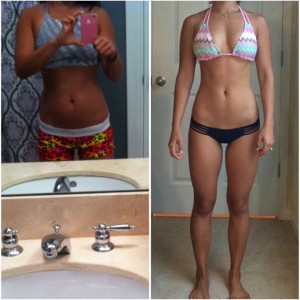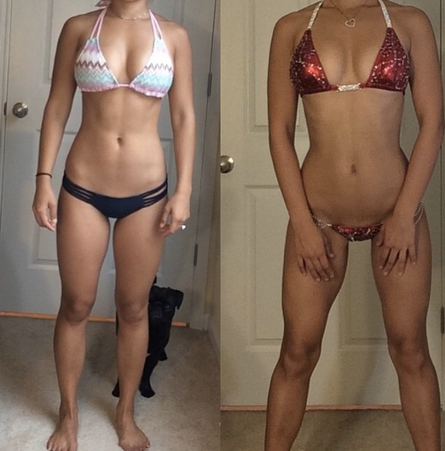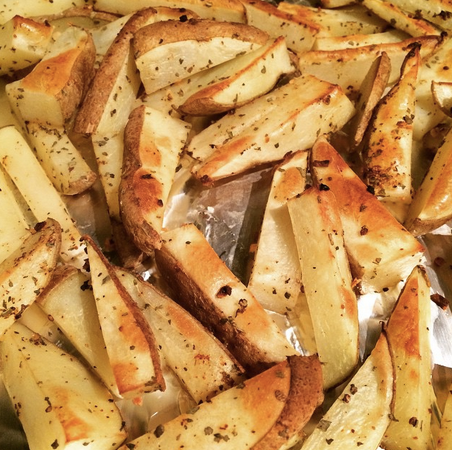25 Things to Know About Fat Loss
1. Scale weight alone provides you with very limited information.
No, scale weight not changing doesn’t necessarily mean that you’ve made zero progress. Maybe it’s the time of month for you, or you’re more stressed than normal, or your sodium intake yesterday was absurdly high. It might mean that you simply haven’t taken a good crap in a while. Hell, if you’ve recently started a sound resistance training program, it may even be the case that you’ve put on muscle while shedding some fat. The number on the scale won’t tell you any of these things. For the love of God, stop obsessing over scale weight.
2. Black and white rules work… until they don’t.
Which really is just another way of saying: they don’t actually work. If you want to reach your fat loss goal, not be miserable during the process, and actually maintain those results over the long haul, shed the unreasonable restrictions. Don’t ban chocolate if you love it, in other words.
3. Fat loss is not linear.
What tends to happen is that fat loss moves along at an impressive in the beginning and then slows down as time goes on. The reasons for this are multiple: you first tend to shed a good bit of water weight plus glycogen, and then you later have less bodyfat to lose, which means it’s harder to shed those last few pesky pounds; your body has adapted to the lowered calorie intake by slowing down its metabolism and otherwise making sure that you lose as littleweight as possible (thanks, evolution); and hell, maybe your dietary adherence has gotten worse due to a combination of physiological adaptations (including increased ghrelin, the hunger hormone) and mental fatigue.
4. By the same token, everyone’s rate of fat loss is different.
Don’t be crying in the corner because Suzy over there has made a remarkable 12-week transformation and looks like a whole new person and you’ve only lost half the fat that she has. Slow progress is still better than no progress, and whining about what you don’t have doesn’t help anything. Focus on you.
5. There is a high, high correlation between self-compassion and getting the body you want.
Sounds backwards, I’m sure. But being kind to yourself means that you self-sabotage less and you don’t lose your mind when you bend the rules.
6. Where you lose fat first from (and conversely, where you gain fat first) depends largely upon genetics, which means that we can’t do much about it.
Some people lean out pretty evenly all overs; others lose top-to-bottom, as is the case with many women. Some have shredded abs year-round regardless of their bodyfat percentage, while others may never see visible abs no matter how lean they get.
7. If you’re having an impossible time losing fat, consider switching gears and building some quality muscle for a while.
You’ll not only look better when you lean back down, but you’ll likely have an easier time, as lean muscle is metabolically active. As well, you can “spot enhance,” as Nick Tumminello says. That means you can build the illusion of having a smaller waist, for example, by building up your lats and shoulders.
8. Coupled with an appropriate caloric deficit, heavy resistance training is paramount.
What builds the muscle keeps it. Cardio is overrated, and I’d argue that most people can make fine progress with just a sprinkling of conditioning here and there.
9. Fat loss takes time. You haveto be patient.
You didn’t get to where you are in a two-week timeframe, so don’t expect the fat to melt off in an instant. Do what you have to do to get to where you want to be, but otherwise don’t stress about it. The results will come eventually.
10. There’s nothing wrong with slow progress.
I repeat: there’s nothing wrong with slow progress.Read here for more.

11. You can’t manage what you don’t measure.
Stay accountable – to yourself, your close friends, and/or your coach – and take regular progress pictures, measurements (I recommend waist and hips at the very least), and dietary adherence.
12. You don’t have to become a professional exerciser to lean out.
Honestly, I’d say 4 to 6 hours per week in the gym is ideal for most individuals, with the large majority of that time spent lifting heavy weights. Just be smart about how you spend your minutes in the gym.
13. Full body or upper/lower splits are recommended for fat loss (in general).
As well, stick to as many compound movements as possible, and you can toss in fun isolation work like bicep curls at the tail end of your sessions if you have a few minutes to spare.
14. Embrace your rest days.
At the absolute bare minimum, take one full day off from the gym per week. That means no formal exercise. Walking is fine, of course, but it’s good to give the body and the mind a break. For me, I’ve found that two full days off works the best to keep my motivation up and training intensity high, plus it affords me time to devote to other areas of my life. You can even take three days off, especially if you’re just beginning your fat loss program.
15. Don’t chase fatigue.
Don’t get upset if a training program that your coach gives you doesn’t leave you dripping in buckets of sweat and crawling out the gym door at the end. The goal is not to make you tired; it’s to make you better. Anyone can make you tired. One thousand burpees, go! There, see? You’re wiped.
16. Fat loss isn’t easy, but there are ways to make it more enjoyable.
For example, did you know that you can still consume alcohol and get lean? Did you know that a Snickers bar by itself won’t halt your progress in its tracks, provided that you take it into the context of the rest of your day’s eating? Did you know that fat loss doesn’t have to suck?
17. Attitude is everything.
That’s the one thing you can definitely control, no matter what happens in your life. You can’t control scale weight, you can’t control where you lose fat from, and you can’t control what other people will say to you or about you. But you can always, always control how you choose to respond to it all.
18. You’re not a martyr for going on a crash diet; you’re an idiot.
Slashing away your calories in hopes of stripping off fat – and keeping it off for good – is a risky venture that I wouldn’t recommend to anyone.
19. Consistency is absolutely paramount.
If you can’t follow your nutrition program consistently, then you won’t get anywhere. The first thing you should do if your consistency is not on point is to check your commitment level. Are you half-assing it, or are you fully dedicated to this journey? If that’s not an issue, then look to the program itself – it may not be a good fit for you as a unique individual. How can you change it so that you can improve your dietary adherence while still getting you toward your goal?

20. If you’re dreading your next meal, you may want to re-think your nutrition strategy.
You want to enjoythe food you’re eating, or else you’re not going to stick to your program for long.

21. Don’t ever let anyone tell you what you can and cannot eat.
Unless you have a food allergy or intolerance, of course – in which case, use common sense. But besides that, you’re an adult. You get to make your own choices. And no, pizza alone does not make you fat, so go ahead and enjoy a few slices every now and then, but stay accountable.
22. You want to make your diet fit your life and not the other way around.
Your quality of life matters. Your life outside of fitness is still relevant.
23. If your hormones are out of whack, then don’t diet.
If you’re struggling with binge eating, then don’t diet. You can always return to fat loss at a later time. Your overall health is the most important thing, and attempting to diet through your health issues can exacerbate the problem.
24. Stop overthinking it.
Obsessing over minutiae is an exercise in futility. Not to mention, you’re wasting precious willpower (which is limited, by the way). Instead of spending hours trying to find that perfect optimal program that will guarantee that you’ll land on the next magazine cover, find a program that’s good enough and execute. Less thinking, more doing.




